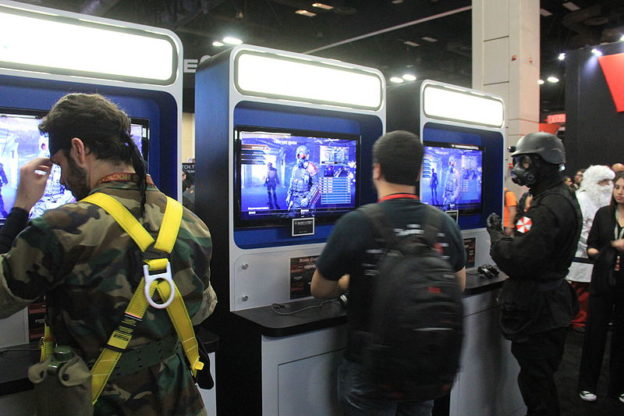Is Video Game Addiction a True Mental Disorder?
The World Health Organization has included the condition “gaming disorder” in the latest 11th edition of its International Classification of Diseases (ICD-11). This inclusion follows the classification by the American Psychiatric Association (APA) of “Internet Disorder” as a “condition for further study” in its latest Diagnostic and Statistical Manual of Mental Disorders (DSM-5). The ICD and DSM are major diagnostic manuals for mental disorders. As a result of collaborations between the organizations, the classification systems described in the publications have converged strongly in their latest revisions.
The APA is hesitant to call Internet Disorder as an “official” disorder; as such a classification would have important implications for physician diagnosis and treatment as well as for insurance claims. The WHO classification is already official for that organization.
According to the WHO, gaming disorder can include: impaired control over gaming; 2) increasing priority given to gaming to the extent that gaming takes precedence over other life interests and daily activities; and 3) continuation or escalation of gaming despite the occurrence of negative consequences. For gaming disorder to be diagnosed, the behavior pattern must be of sufficient severity to result in significant impairment in personal, family, social, educational, occupational or other important areas of functioning and would normally have been evident for at least 12 months.
The WHO recognizes that gaming disorder affects only a small proportion of people who engage in digital- or video-gaming activities. However, the inclusion of gaming disorder in ICD-11 will result in the increased attention of health professionals to the risks of development of this disorder and, accordingly, to relevant prevention and treatment measures. Addiction is usually associated with the taking of drugs or other substances (substance abuse), but an understanding of the disorder has been expanded to include behaviors not involving substances, such as gambling addiction.
A group of scholars has taken issue with the WHO’s classification of gaming disorder. Their contention is that the WHO and the APA find a unique disorder in what is a normal recreational activity (video gaming). The scholars argue that the wrong criteria are used to diagnose gaming addiction (neglecting other activities in the gamer’s daily life). They feel that problems with video gaming could be the result of a preexisting mental health disorder.
This issue is related to larger problems of classifying mental disorders. Classification systems are often based on the assumption of assigning categories with distinctive characteristics. In the case of mental disorders, the characteristics shown in many categories can show overlap. In other words, it can be difficult to classify mental disorders as distinct entities. Mental disorders are largely based on observable signs and patient-reported symptoms rather than by their underlying causes.
Van Den Brink replied to the scholars’ paper agreeing that there is nothing inherently wrong with video gaming and that it can be just another recreational activity. However, he notes that, just like other activities, gaming becomes a problem when the person loses control over it, and it replaces other important activities.
What should the gamer or concerned family and friends do?
Gamers, as well as concerned family and friends, should be alert to the extent that gaming activities could be impairing their daily activities. Only a small proportion of gamers develop a truly addictive behavior, so people around the gamer should not become unduly alarmed. Many gamers with disorders can overcome their problems without professional help. The ICD-11 and DSM-5 classifications of gaming addiction provide guidelines to professionals, but they still use their clinical jjudgmentfor diagnosis and treatment of the condition.
References
- Aarseth, Espen, et al. “Scholars’ open debate paper on the World Health Organization ICD-11 Gaming Disorder proposal.” Journal of Behavioral Addictions 6(3), pp. 267–270 (2017) https://akademiai.com/doi/pdf/10.1556/2006.5.2016.088
- Clark, Lee Anna, et al. “Three Approaches to Understanding and Classifying Mental Disorder: ICD-11, DSM-5, and the National Institute of Mental Health’s Research Domain Criteria (RDoC)” Psychological Science in the Public Interest, 18(2) pp.72–145 (2017) http://journals.sagepub.com/doi/pdf/10.1177/1529100617727266
- Sarkis, Stephanie. Internet Gaming Disorder in DSM-5. Psychology Today
- Van den Brink, Wim. “ICD-11 Gaming Disorder: Needed and just in time or dangerous
and much too early?” Journal of Behavioral Addictions 6(3), pp. 290–292 (2017)
https://www.ncbi.nlm.nih.gov/pmc/articles/PMC5700715/
- World Health Organization. Gaming disorder.
http://www.who.int/features/qa/gaming-disorder/en
